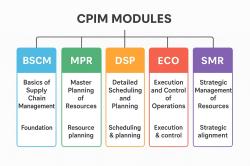Should I buy a franchise or start my own business?
Deciding whether to buy a franchise or start your own independent business is a significant choice that depends on your individual circumstances, goals, and preferences. Both options have their advantages and disadvantages. Here are some key factors to consider when making this decision:
Advantages of Buying a Franchise:
Proven Business Model: Franchises come with a proven business model, which can reduce the risks associated with starting a business from scratch. The franchisor has already developed successful operational procedures and marketing strategies.
Brand Recognition: Franchises often have established brand recognition and a customer base, which can make it easier to attract customers compared to a new, independent business.
Training and Support: Many franchisors provide training, ongoing support, and access to resources, which can be valuable, especially if you lack prior business experience.
Marketing and Advertising: Franchises may benefit from national or regional marketing and advertising campaigns funded by the franchisor, which can help drive customers to your location.
Supplier Relationships: Franchises often have established relationships with suppliers, potentially leading to cost savings and easier access to inventory.
Easier Financing: Financing a franchise can be easier because lenders may view them as less risky due to their established track record.
Advantages of Starting an Independent Business:
Creative Control: With an independent business, you have complete creative control over your business model, branding, and operations. You can adapt and innovate as you see fit.
Flexibility: You have the flexibility to make decisions quickly and change course without being bound by a franchisor's rules and regulations.
Lower Initial Costs: Starting an independent business may require lower upfront costs compared to buying a franchise, as there are no franchise fees or royalty payments.
Profit Potential: If your independent business succeeds, you have the potential for higher profits since you are not sharing earnings with a franchisor.
Unique Concept: You can introduce a unique product or service concept that may not be available through franchising.
No Franchise Fees: You won't be required to pay franchise fees, royalties, or ongoing fees to a franchisor.
Considerations for Your Decision:
Your Skills and Experience: Assess your skills, experience, and knowledge in the industry. If you lack experience, a franchise may offer more support.
Financial Resources: Consider your financial resources, including your available capital and ability to secure funding. Franchises often require a higher initial investment.
Risk Tolerance: Evaluate your risk tolerance. Starting an independent business can be riskier due to the lack of a proven model.
Long-Term Goals: Think about your long-term goals. Franchise agreements often have specific terms, while an independent business allows for greater flexibility in your long-term plans.
Market Research: Conduct thorough market research to determine if there is demand for your product or service concept, whether as a franchise or an independent business.
Passion and Interest: Consider your passion and interest in the industry. Your enthusiasm can contribute to your success in either option.
Ultimately, the decision between buying a franchise or starting an independent business should align with your personal and financial goals. Carefully evaluate your options, conduct due diligence, seek advice from business advisors or mentors, and choose the path that best suits your vision, resources, and risk tolerance. Both options can lead to successful entrepreneurship if pursued with dedication and careful planning.
Franchise vs. Independent Business: Making the Right Choice
Whether to start a franchise or an independent business is a decision that should be made carefully, after weighing the pros and cons of each option.
Franchises offer a number of advantages, including:
- Brand recognition: Franchise businesses are already associated with a well-known brand, which can give you a head start in attracting customers.
- Proven business model: Franchises have a proven business model that has been successful in other locations. This can reduce the risk of failure.
- Training and support: Franchisors typically provide their franchisees with training and support, which can help you to learn how to run your business successfully.
- Economies of scale: Franchises can benefit from economies of scale, such as lower prices on inventory and marketing costs.
However, franchises also have some disadvantages, including:
- Startup costs: Franchise businesses can be expensive to start. You will need to pay a franchise fee, as well as the costs of equipment, inventory, and marketing.
- Ongoing fees: In addition to the franchise fee, you will also need to pay ongoing royalties to the franchisor.
- Lack of control: As a franchisee, you will need to follow the franchisor's rules and regulations. This can limit your flexibility and creativity.
Independent businesses offer a number of advantages, including:
- Flexibility: As an independent business owner, you have the flexibility to make your own decisions about how to run your business.
- Creativity: You are free to innovate and create your own brand and products or services.
- Profit potential: Independent businesses have the potential to be more profitable than franchises, since you do not have to pay royalties to a franchisor.
However, independent businesses also have some disadvantages, including:
- Risk: Starting an independent business is riskier than starting a franchise. You will need to develop your own business model and marketing strategy, and there is no guarantee of success.
- Hard work: Running an independent business typically requires a lot of hard work and dedication. You will need to be prepared to put in long hours, especially in the early stages of your business.
- Limited resources: Independent businesses often have limited resources, such as capital and marketing power. This can make it difficult to compete with larger businesses.
Making the Right Choice
The best way to decide whether to start a franchise or an independent business is to weigh the pros and cons of each option and choose the option that is best for you, your interests, and your skills.
If you are looking for a business opportunity with a proven track record and brand recognition, then franchising may be a good option for you. However, if you are looking for more flexibility and creativity, then starting an independent business may be a better choice.
Ultimately, the decision of whether to start a franchise or an independent business is a personal one. There is no right or wrong answer. The most important thing is to do your research and choose the option that is best for you.
Here are some additional tips for making the right choice:
- Talk to other business owners. Get their perspective on the challenges and rewards of owning a business.
- Do your research. Learn about different franchise opportunities and independent business ideas.
- Write a business plan. This will help you to develop a clear vision for your business and to identify the resources you will need to succeed.
- Seek professional advice. Talk to a business consultant or accountant to get their input on your business plans.
Once you have made a decision, be prepared to work hard and dedicate yourself to your business. With hard work and dedication, you can achieve success, whether you choose to start a franchise or an independent business.













